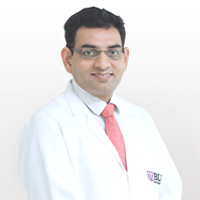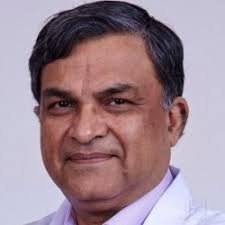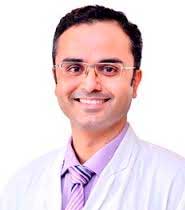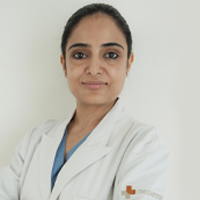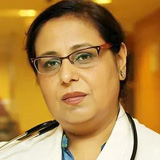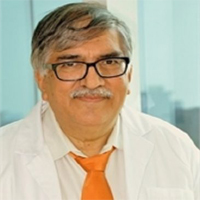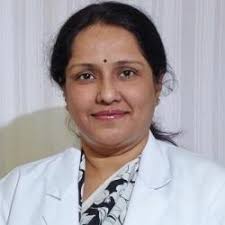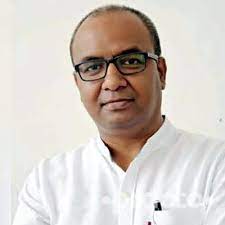Colon Cancer Treatment IN INDIA
Colon Cancer Treatment
Colorectal cancer, commonly referred to as colon cancer, originates in the large intestine or rectum. Colon cancer, even though not talked about as much as other cancers like breast, prostate, or lung cancer, is a serious cause of cancer deaths. It’s the 3rd most common cancer in both men and women excluding skin cancers. Around 1 in 24 men and 1 in 27, women might develop colorectal cancer in their lifetime. The level of risk varies among individuals due to factors such as genetics, age, and lifestyle. Although family history remains unchangeable, adopting a healthier lifestyle has the potential to reduce this risk. Moreover, seeking colon cancer treatment in India can offer an effective and affordable solution for those facing this condition.
Colon Cancer – Overview
Colon cancer originates in the inner lining of the colon or rectum. It often develops from abnormal growths called polyps, which can become cancerous over time. These growths have the potential to block the intestine, leading to symptoms like alterations in bowel habits. The colon extracts water from waste, and the rectum removes it from the body. Rectal cancer starts in the end part of the colon close to the anus.
Colorectal cancer, a combination of colon and rectal cancer, is widespread. Inflammatory bowel diseases such as Crohn’s and colitis increase the risk.
Colon cancer has different stages, numbered from 0 to 4. The lower numbers (0, 1, 2, and 3) mean the cancer is mostly in the inner lining of the colon. But when we reach stage 4, the cancer has become more serious and has moved to other parts of the body. This is called advanced or metastatic cancer, which means the cancer has spread to new places.
Symptoms of Colon Cancer
Understanding the signs of colon cancer is important. Some signs might not seem important, but listening to your body can help. Let’s look at the important signs that might mean you have colon cancer:
- Bleeding from the rectum
- Blood in the stool
- Altered bowel habits (constipation or diarrhea, or stool consistency change)
- Unexplained weight loss
- Feeling of incomplete emptying
- Fatigue
- Lump in abdomen
- Change in bowel habits
- Narrower stools
- Black stools
- Abdominal discomfort with pain, gas, bloating, and cramps
Causes of Colon Cancer
Colon cancer doesn’t usually happen because of just one reason. It’s often caused by a mix of different factors. Certain things that increase the chances of getting colon cancer include:
- Risk increases with age
- Personal history with colorectal cancer or polyps
- Family records of colon cancer or polyps
- Inflammatory bowel disease (Crohn’s disease, ulcerative colitis)
- Inherited genetic syndromes (Lynch syndrome, familial adenomatous polyposis)
- Sedentary lifestyle
- A high-fat, low-fiber diet
- Obesity
- Smoking
- Heavy alcohol consumption
- Diabetes
- Radiation therapy for previous cancers
- Chronic inflammation of the colon
Diagnosis of Colon Cancer
Finding colon cancer early is really important because it helps with getting better treatment results. Screening tests can discover colon cancer even before you feel any problem, which makes treating it easier.
- Common Screening Tests include:
- Colonoscopy: A colonoscopy is the top choice when it comes to checking for colon cancer. In this test, a long, bendy tube with a camera is put into the colon. The doctor can see the whole colon and rectum through the camera. If they find any lumps called polyps, they can take them out or study them for further analysis.
- Sigmoidoscopy: Just like a colonoscopy, a sigmoidoscopy checks the lower part of your colon and rectum. It doesn’t show everything like a colonoscopy, but it can still find problems, and it’s not as intense.
- Stool Tests: Fecal occult blood tests (FOBT) and fecal immunochemical tests (FIT) are like special checks for stool. They look for tiny amounts of blood in the stool, which could be a sign of problems like polyps or cancer in the digestive system. These tests help doctors catch potential issues early on so they can be treated.
- Diagnosis and Staging:
When a test indicates that you may have colon cancer, more tests are performed to confirm the diagnosis and determine the severity of the disease. Among these tests are:
- Biopsy: If a doctor notices something unusual during a colonoscopy, they may sample a little bit of tissue (biopsy) to determine whether it is cancer and gives details about what kind of cancer it is. This is called
- Special scans such as CT, MRI, and PET take comprehensive photographs of your colon and surrounding regions. They help in determining if the cancer has spread.
- Blood Tests: Some tests, such as the CEA (carcinoembryonic antigen) test, examine your blood. It can determine if a person is more likely to develop or get worse colon cancer.
Risk Factors for Colon Cancer
- Polyps and Colon Cancer: Colon cancer can develop from precancerous polyps in the large intestine. Some polyps can turn into malignant (cancerous) colon cancer if not removed early.
Types of polyps include:
- Adenomas: These may look different under a microscope and can become cancerous.
- Hyperplastic polyps: They are usually not linked to colon cancer.
- Genes and Uncontrolled Cell Growth: Uncontrolled cell growth can happen due to genetic changes or DNA damage. Around 5-10% of colon cancers come from specific inherited conditions that increase the risk of polyps and colon cancer.
- Inherited Conditions that Increase Colon Cancer Risk: Specific inherited conditions that can raise the risk of colon cancer include:
- Attenuated Familial Adenomatous Polyposis
- Familial Adenomatous Polyposis (FAP)
- Gardner Syndrome (a type of FAP)
- Lynch Syndrome (Hereditary Nonpolyposis Colorectal Cancer)
- Juvenile Polyposis Syndrome
- Muir-Torre Syndrome (a variant of Lynch syndrome)
- MUTYH-Associated Polyposis
- Peutz-Jeghers Syndrome
- Turcot Syndrome (another variant of FAP)
- Traits, Habits, and Diet that Increase Colon Cancer Risk:
- Age: Most people diagnosed with colon cancer are over 50, but it’s becoming more common in people under 50.
- Lifestyle Factors: Obesity increases the chance of getting colon cancer. People who use tobacco are more likely to develop colon cancer.
- Diet and Nutrition: Diet plays a big role in colon cancer risk. Low-fiber diets can contribute to colon cancer. Eating too much-saturated fats, red meat, alcohol, and processed meat can raise the risk.
- Underlying Conditions: Medical history of polyps is linked to higher risk. Having other cancers like breast, ovarian, or endometrial cancer can also raise the risk.
- Other Risk Factors:
- Family history of colon or rectal cancer in parents, siblings, or children increases risk.
- Personal history of colon, rectal, or ovarian cancer raises the chance of getting colon cancer.
- Having larger polyps (1 cm or more) or abnormal cells increases the risk.
- Inherited genetic conditions like Lynch syndrome increase the risk.
- Chronic ulcerative colitis or Crohn’s disease for 7 years or longer raises risk.
- Drinking alcohol regularly (three or more times a day) increases the chance of colon cancer.
- Smoking cigarettes
- Getting older increases the likelihood of colon cancer.
- Lack of physical activity
- Diets low in fiber and high in fat, while lacking in fruits and vegetables, can raise the risk.
Colon Cancer Treatment in India
- Surgery: The main and best way to treat colorectal cancer is through surgery. In surgery, they take out the tumor and some nearby tissues. This is called surgical resection.
Surgical Treatment for Colon Cancer:
- Polypectomy: In this small procedure, doctors remove tiny growths (polyps) from the colon lining.
- Laparoscopic Colectomy: A minimally invasive surgery where they use a small camera to remove the part of the colon with cancer and nearby tissue.
- Open Colectomy: This surgery involves a larger incision to take out the cancerous part of the colon.
- Colostomy: Sometimes, when part of the colon is removed, they create an opening (stoma) on the belly for waste to exit.
- Radiofrequency Ablation (RFA): Special waves are used to heat and destroy cancer cells in a targeted area.
- Cryoablation: Extremely cold temperatures are used to freeze and kill cancer cells.
- Chemotherapy: Chemotherapy acts like strong medicine warriors targeting and defeating cancer cells.
- Before surgery, it can shrink a tumor, making it easier to remove.
- After surgery, chemotherapy continues its battle by hunting down any remaining cancer cells to prevent recurrence.
- In advanced cases where cancer has spread to other organs, chemotherapy becomes the primary fighter, aiming to stop the spread and shrink the cancer.
- Radiation Therapy: Radiation therapy directs strong energy beams to attack and eliminate cancer cells. It can work even better when used together with surgery or chemotherapy.
- Targeted Therapy: Targeted therapies are special medicines that aim directly at specific parts of cancer cells. They are used when the tumor has certain changes in its genes.
- Immunotherapy: Immunotherapy is a treatment that helps your body’s defense system (immune system) find and fight against cancer cells. It’s a newer way of treating colon cancer that looks quite hopeful for certain types of the disease.
- Palliative Care: Palliative care is all about making life better for people with serious colon cancer. It helps control symptoms and brings comfort to those who need it most.
Best Colon Cancer Treatment Hospitals in India
In big cities across India, there are special hospitals for treating colon cancer. People from other countries can choose a hospital that suits them best. These hospitals have top-notch medical tools and modern machines to find out what’s wrong and do surgeries very carefully.
The top colon cancer hospitals in India are just as good as the ones in advanced countries like the UK, US, Germany, and Europe. Moreover, Al Afiya Medi Tour stands by you every step of the way, providing comprehensive assistance throughout your medical journey. From guidance to practical support, we are here to help you with every aspect of your treatment and ensure a smooth and comfortable experience.
- Gleneagles Global Hospitals Mumbai
- Apollo Hospitals Chennai
- HCG Hospitals, Bangalore
- Artemis Hospital, Gurgaon
- Kokilaben Dhirubhai Ambani Hospital, Mumbai
- BLK-Max Super Speciality Hospital Delhi
- Medanta The Medicity, Gurgaon
- Jaypee Hospital Noida
- Gleneagles Global Hospitals Bangalore
- Fortis Memorial Research Institute, Gurgaon
- Manipal Hospitals Dwarka, Delhi
- Jaslok Hospital, Mumbai
- Marengo Asia Hospitals, Gurgaon
Top Colon Cancer Treatment Doctors in India
Top colon cancer hospitals in India have adopted a team approach to treat cancer. They bring together a group of experts, including the best oncologists in India, medical oncologists, radiation oncologists, and other medical staff. This dedicated team works together to take care of all types of cancer patients, making sure they get complete and thorough treatment. And Al Afiya Medi Tour is here with you all the way. We’ll be by your side, offering assistance and support at every step of your journey. You can count on us to help you with everything you need.
Dr. Balaji Ramani
MBBS, MS, MRCS, M.Ch, DNB(Onco),MGM Healthcare,Chennai
Dr. P Jagannath
MBBS, MS – General Surgery, FICS, FIMSA, FACS, FAM, S.L. Raheja Fortis Hospital, Mumbai
Dr. Rajasundaram
MBBS, MS – General Surgery, MCh – SurgicalOncology, Global Hospital, Chennai
Dr. Somashekhar S. P.
MBBS, MS – General Surgery, MCh – Surgical Oncology, FRCS – General Surgery
Manipal Hospital,Bangalore
Dr. Jalaj Baxi
MBBS, MS – General Surgery, DNB – GeneralSurgery, Fortis Hospital, Delhi
Dr. Chetan Kantharia
MBBS, MS – General Surgery, DNB –Gastroenterology, Nanavati Max Hospital, Mumbai
Dr. Sandeep Nayak P
MBBS, DNB – General Surgery, DNB – Surgical Oncology, MRCS (UK), MNAMS, Fortis Hospital, Bangalore
Dr. Rajesh Puri
MBBS, MD – General Medicine, DNB –Gastroenterology, Medanta Hospital, Delhi
Dr. Ulhas Kulkarni
MBBS, MS – General Surgery, S.L. Raheja Fortis Hospital, Mumbai
Dr. Virandera Pal Bhall, MBBS, MS – General Surgery, BLK Max Hospital, Delhi
Colon Cancer Treatment Cost in India
Getting treated for Colon Cancer in India is much more affordable compared to the US and other developed countries. The cost can differ depending on the patient’s condition and the treatments needed. In developed nations, the expenses for these treatments are often twice as much as in India. On average, Colon Cancer Surgery in India costs around $3100 to $6200.
Several factors contribute to the price of Colon Cancer Treatment in India, including the treatment method, type of surgery, any additional treatments needed alongside Colon Cancer Treatment, necessary medical tests and evaluations, hospital fees, and the category of room chosen for stay. This makes getting Colon Cancer Treatment in India a more cost-effective option without compromising on quality care.
- Radiofrequency Ablation – $1600
- Cryosurgery – $1500
- Radiation Therapy – $3500
- Polypectomy – $4500
- Chemotherapy – $300
Colon Cancer Treatment Success Rate in India
The treatment success for colon cancer in India is quite positive, especially for those diagnosed early. If colon cancer is caught in the initial stage, there’s a good chance of surviving for 5 years, with a high rate of 92 percent. The outcome depends on factors like how far the cancer has grown, the treatments used, and the person’s lifestyle. India has advanced medical tools, caring treatment, and skilled doctors, giving hope to people with colon cancer. This highlights how spotting the cancer early and getting timely treatment is really important.
Top Colon Cancer Treatment Doctors in India
The right doctor to consult for a Colon Cancer Treatment case.
Dr. Sabyasachi bal
Year of experience: 30
Senior Consultant at Sir Ganga Ram Hospital, Delhi
Dr. Surender Kumar Dabas
Year of experience: 12 years of experience
Dr. Ajay Kumar Kriplani
Year of experience: 33 Years of Experience
Dr. Akshay Tiwari
Year of experience: 18 Years of Experience
Head of the Department at Max Super Speciality Hospital, Saket, Delhi
Dr. Amit Agarwal
Year of experience: 20 years of experience
Dr. Kanchan Kaur
Year of experience: 17 years of experience
Dr. Meenu Walia
Year of experience: 27 years of experience
Dr. Rakesh Chopra
Year of experience: 15 years of experience
Dr. Rashmi Pyasi
Year of experience: 20 years of experience
Dr. Rayaz Ahmed
Year of experience: 17+ Years of Experience
Dr. Satya Prakash Yadav
Year of experience: 23
Senior Consultant at Medanta The Medicity
Dr. Vinod Raina
Year of experience: 50
Senior Consultant at Fortis Memorial Research Institute, Gurgaon
Leading Hospitals for Colon Cancer Treatment in India
Looking For The Best Doctor & Hospital?
Fill up the form and get assured assitance within 24 hrs!
Success Rate of Colon Cancer Treatment in India
FAQs
What is colon cancer treatment?
Colon cancer is a curable disease when localized to the bowel area. The surgery here is a major form of treatment and can cure about 50% of the patients. However, based on the patient’s health, other treatments, such as chemotherapy or radiation therapy, can be used. The treatment will depend entirely on the stage and the location of the cancer. The healthcare provider will consider the patient’s overall health before creating a treatment plan.
What is robotic colon cancer treatment?
In robot-assisted surgery for colon treatment, surgeons use technology to remove cancerous growth from the patient’s body. The procedure offers better precision to the surgeons. With robotic surgery, surgeons will have improved 3D visualization in difficult-to-access pelvic spaces. Thus, they can perform life-saving surgeries. This type of surgery for colon cancer treatment has become extremely popular because of the precision it provides.
What are the types of colon cancer treatment?
The treatment for colon cancer will vary depending on the patient’s current medical condition, potential side effects, overall health, and the medications the patient already takes. Based on this, the doctor will advise the treatment that will work best for recovery. Here are the common types of treatment that the doctor can advise.
- Surgery
- Radiation therapy
- Chemotherapy
- Targeted therapy
- Immunotherapy
How much time will it take for colon cancer treatment in India?
The time required to complete the colon cancer treatment will vary greatly. There are a lot of factors that need to be considered. But, based on the initial diagnosis and the stage of the colon cancer, the treatment will require about 3 to 6 months completing.
Who can get colon cancer treatment in India?
Any candidate showing signs of possible cancerous development in the body is eligible for treatment. The specialist will take time to analyse and diagnose the condition of the patient to know at what stage the cancerous development is and then devise the treatments that can be used to eradicate cancer.
The patients need to look out for certain symptoms like weakness, diarrhea, shortness of breath, constipation, bright blood in the stool, abdominal pain, and others before visiting the doctor for diagnosis.
What are the precautions after colon cancer treatment in India?
Colon cancer treatment can put a strain on the body. With all the radiation going on, you need to take proper care after you have received the surgery. There are certain precautions you need to take to avoid any concerns.
- Get a follow-up screening every 3 to 6 months for the upcoming five years
- Consult the doctor about the side affects you are experiencing emotionally and physically to get the right treatment.
- Work with the doctor to come up with a personalized follow-up care plan. Make sure to discuss your concerns and get a proper diet plan for faster recovery.
- Avoid eating food that can irritate the colon. Instead, choose the easy-to-digest food.
What is the colon cancer treatment success rate in India?
The colon cancer treatment success rate in India is about 80-90%. Overall, it is anticipated that the patient will have a five-year survival rate with colon cancer. While there is a 90% chance the patients with the first stage will live up to 5 years. But it will depend on the stage of cancer, lifestyle, and the treatment used. This means when the concern is identified during the early stage, the patient will have a better chance of living a healthy life.
What is the colon cancer treatment cost in India?
The basic cost of colon cancer treatment in India for diagnosis and evaluation is approximately $500.
The cost of a PET scan used for diagnosing colon cancer ranges from approximately $310 to $360.
The cost of removing early-stage polyps for colon cancer surgery is around $2,700 to $4,700.
The cost of colon cancer surgery varies between $3,000 and $5,400.The cost of one cycle of chemotherapy is approximately $450 to $1,000
What is robotic surgery cost in India?
Robot surgery has seen a great boom in the medical industry. It ensures better precision and surgeon results. Robotic surgery costs in India can be a bit high. It reaches between INR 110000 to INR 475000. The price will depend on the type of surgery, hospital, insurance, room services, and more.
What are the top 10 best colon cancer treatment hospitals in India?
Picking the best colon cancer treatment hospitals in India is not an easy job. Make sure to go ahead with the one with cutting-edge technology and the best specialist to offer quality care and treatment. Here, check out the list of the top colon cancer treatment hospitals in India you can consider.
- Medanta- The Medicity, Gurgaon
- Kokilaben Dhirubhai Ambani Hospital, Mumbai
- BLK Super Speciality Hospital, New Delhi
- Dharamshila Narayana Superspeciality Hospital, New Delhi
- Fortis Memorial Research Institute, Gurgaon
- Apollo Hospitals, Greams Road, Chennai
- Artemis Hospital, Gurgaon
- Indraprastha Apollo Hospital, New Delhi
- Gleneagles Global Hospital, Chennai
- Apollo Gleneagles Hospital, Kolkata
What are the top 10 best colony cancer treatment surgeons in India?
Choosing the right oncologist is an important decision. After all, it will determine the quality of treatment the patient will receive. Luckily, a simple search for the best colon cancer surgeons in India is enough to find the top specialists located all across the country. But to ease the process here, check the list of the best colon cancer surgeons in India.
- Dr. Virandera Pal Bhalla- BLK Super Speciality Hospital, New Delhi
- Dr. Ulhas Kulkarni- S.L. Raheja Fortis Hospital, Mumbai
- Dr. Rajesh Puri- Medanta The Medicity, Gurgaon
- Dr. Sandeep Nayak P- Fortis Hospital, Bangalore
- Dr. Chetan Kantharia- Nanavati Max Hospital Mumbai
- Dr. Jalaj Baxi- Fortis Hospital, Delhi
- Dr. Sridhar Krishnamurthy- Global Hospital, Chennai
- Dr. Sudheer Kumar Tyagi- Apollo Hospitals, New Delhi
- Dr. S Hukku- BLK Super Speciality Hospital, New Delhi
- Dr. Vinod Raina- Fortis Memorial Research Institute, Gurgaon
How can I apply or get or book an appointment for colon cancer in India?
Once you have identified the symptoms, you must book an appointment with the best specialist. Search for a doctor nearby and then apply for colon cancer in India. For this, you have to give a call or send an email to Alafiymeditour to book an appointment. We will contact you to help book an appointment for colon cancer in India. With this, you can start the treatment as soon as possible.
Get FREE Evaluation
Treatment plan and quote within within 24 hrs!
Let us help you
Get your personalized Estimate Now
Top Doctors & Surgeons in India
Best Hospitals in India
Best Treatments in India
Indian Medical Visa From
Copyright © 2025 Al Afiya Medi Tour | All Rights Reserved.


